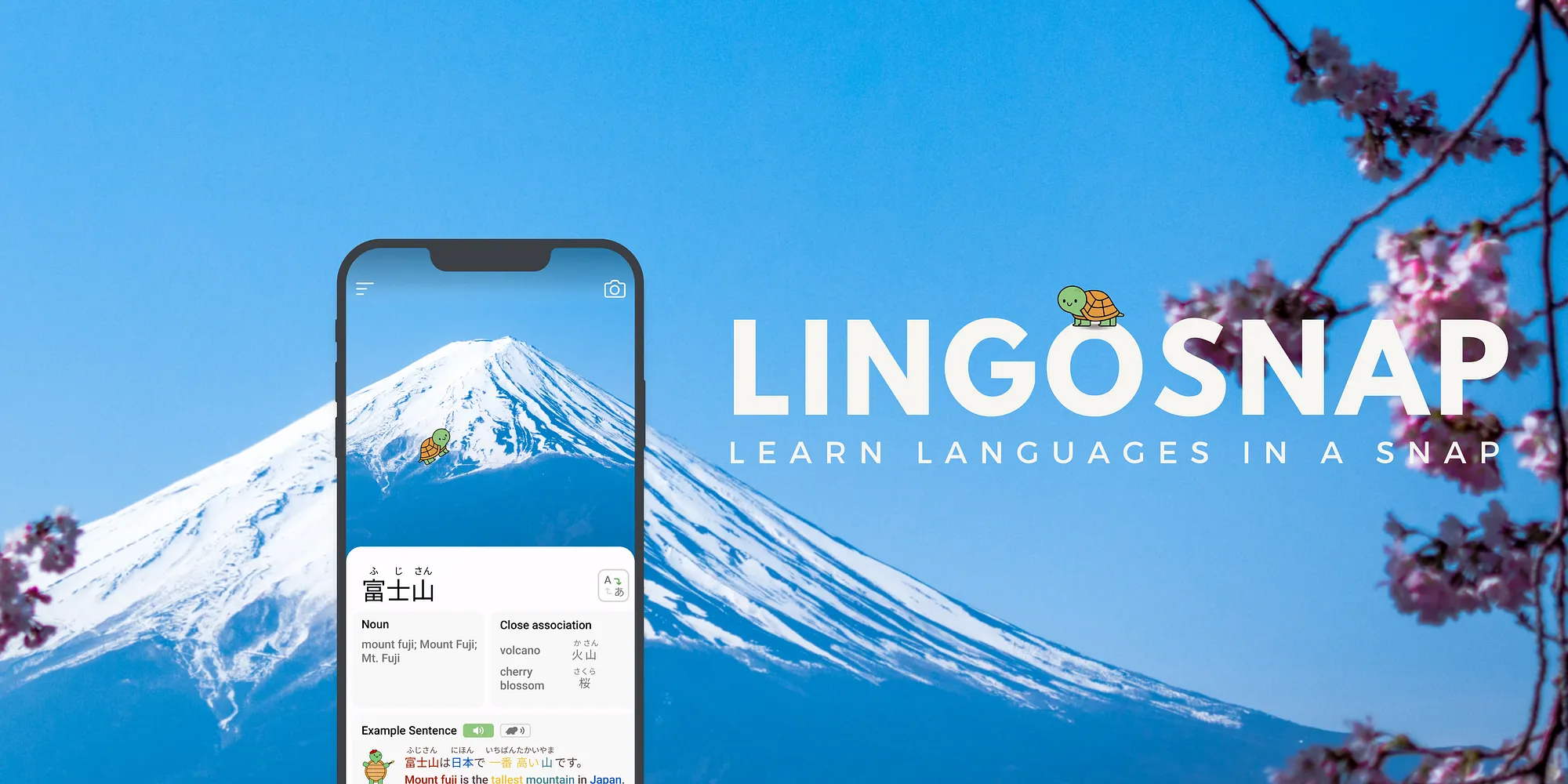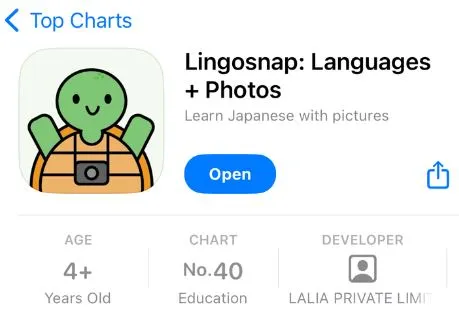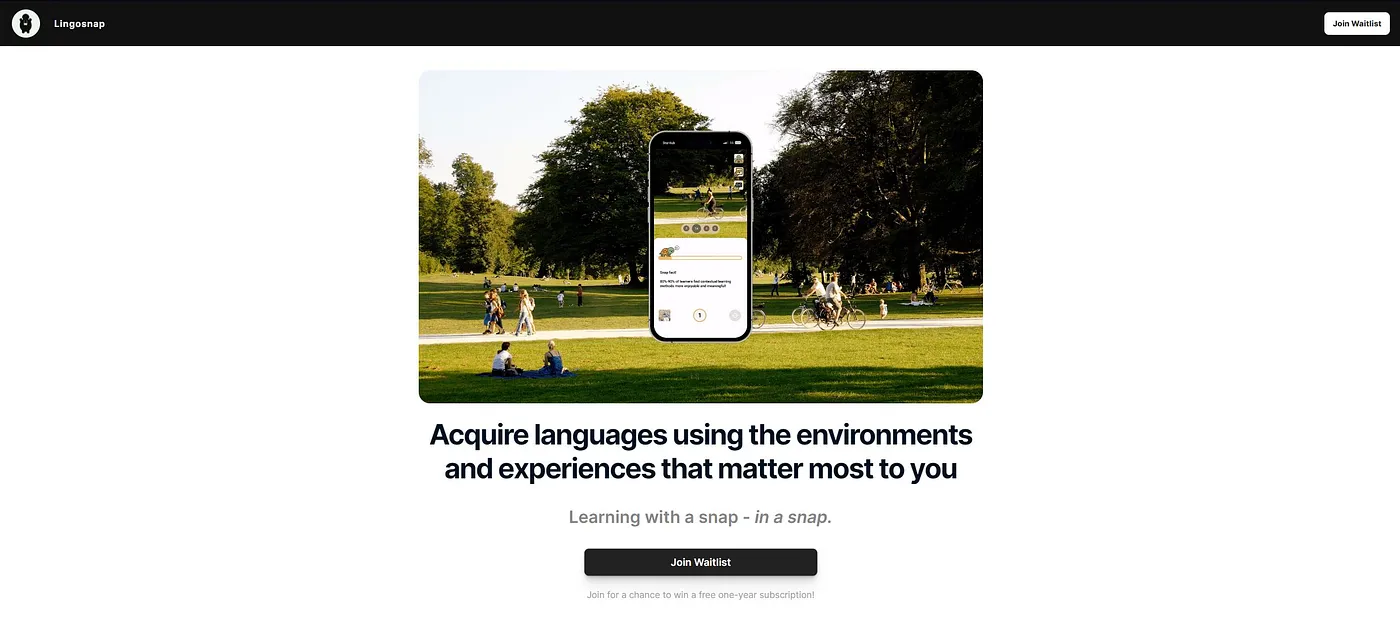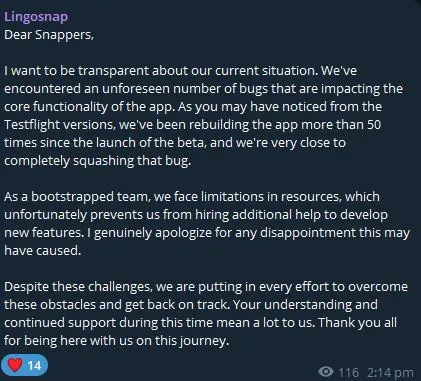5/27/24
•
4 min
•
Phang Wei Jun
Hurray - We're a top 40 app!
Hey everyone,
My name is Jun, co-founder of Lingosnap.

I know many developers out there with great app ideas who struggle to navigate the launch of their app.
When we started ten months ago, we were clueless.
We have decided to share the strategies that helped us to number 40 on the Education Charts.
Hopefully, they can also contribute to the successful launch for your app.

Lingosnap launch strategy
At the heart of our strategy, we wanted to:
obtain as many downloads at launch
acquire as many beta users possible

Execution time!
Landing Page
Initially, we believed that a well-designed website would lead to an increase in traffic.
Websites primarily serve to convert visitors using your CTA (beta signups in this case). It’s very challenging for new products to obtain traffic even with excellent SEO.
Especially in industries with high-budget competitors, have you seen the number of sponsored posts?

Offering free subscriptions, discounts, and other incentives can be effective strategies to improve your CTA’s conversion.
If you are seeking traffic, these sources are more effective:
Regularly engage with and update your network on LinkedIn, directing them to your website.
Make connections with potential users, collaborators, and even competitors in your industry.
These connections are likely to be among the first to download your app once it is launched.
Existing communities
Join online communities such as Facebook groups and Reddit forums of your target persona, as well as physical communities, if applicable.
These platforms can be valuable sources for connecting with potential users.
Don’t forget to direct them to your website.
If you’ve done both outreach methods, it’s also a good time to check your analytics if your CTA is working well.
Beta websites
Beta communities are filled with people who are
open to trying novel products
forgiving of your bugs and
willing to provide feedback.
They’re also a good source of traffic to quickly build a substantial beta list. For us, we managed to build a 500 people beta list in 7 days.
There are many beta websites out there but we benefitted the most from betabound.
Engage
After you’ve channeled all your traffic to your beta list and received signups, you will need to engage them as much as possible.
Beta participants have a vested interest in your product because they committed their email to it. But it’s your responsibility to keep them engaged.
Build a system for feedback and updates. You could use feedback management systems as sophisticated as canny.io or something as simple as a Telegram group.

You need to be transparent with your community, showing that you’re putting in the work, even if the beta app doesn’t seem like it has changed much. Honestly, they’re also a good source of motivation when things get rough. ❤️
Launch
Let your new community know that you’re about to launch the product and encourage them to download the app as soon as possible.
A quick tip about App Store Optimisation (ASO): Your iOS app store search rankings are determined by the reviews and ratings from your users.
So, aside from getting downloads, it’s important that you include reviews and ratings into the in-app experience.
Post-launch: Reach out to everyone and anyone
While it might sound scary, don’t be afraid to approach everyone on your contact list to ask for a download or to introduce the app to their friends.
It might seem daunting, but you will need all the help you can get. And it doesn’t hurt to have thicker-skin as an entrepreneur.
Things that didn’t really work for us
Blogging
I think blogging is a long-term strategy for customer acquisition. Unfortunately, we were operating on a short timeline, and blogging takes too much time. It’s a nice-to-have, but people won’t read your blog if your product hasn’t built enough credibility.
ProductHunt
ProductHunt definitely works for a lot of people, but it didn’t for us. Gaining visibility on ProductHunt is very challenging unless you 1) pay for advertising or 2) spend considerable time reaching out to users on LinkedIn. With a small team of three, we had to choose between networking extensively on LinkedIn or focusing on product development. We chose the latter.
Anyway, growing the product is our next challenge!If you have any ideas or questions feel free to reach out on X and LinkedIn. Hope our experience is useful for your new app! All the best!

